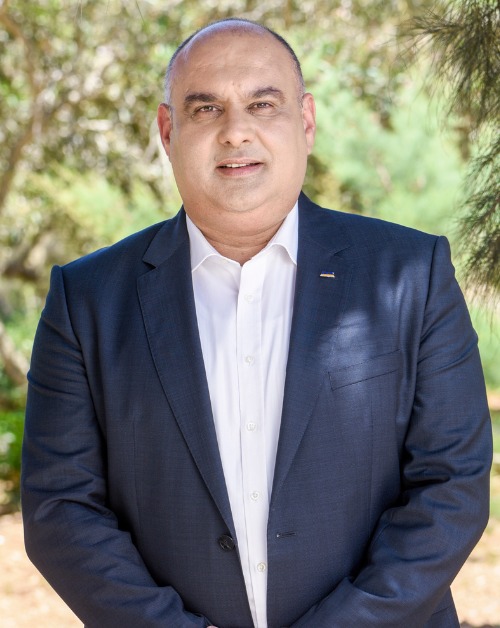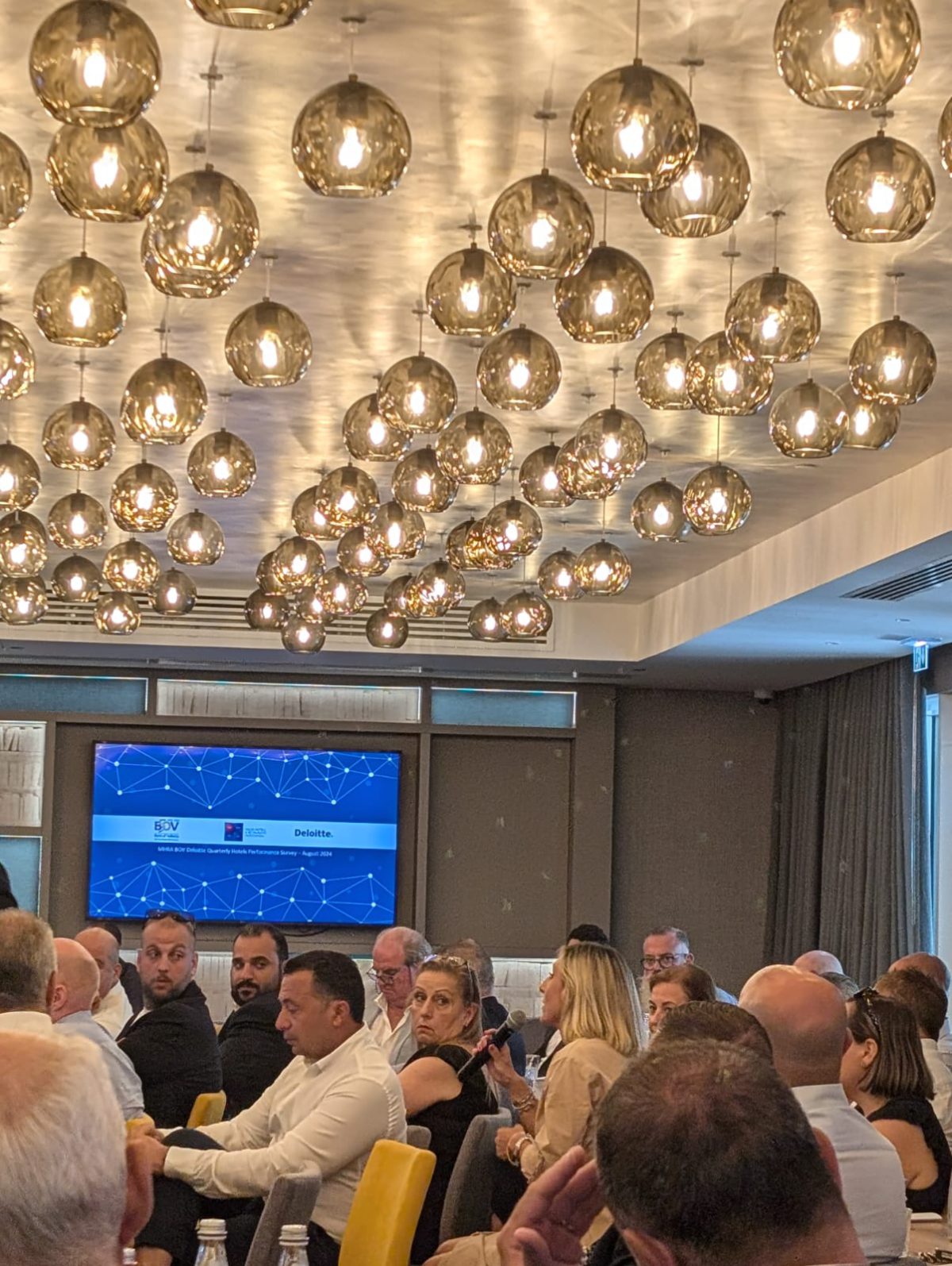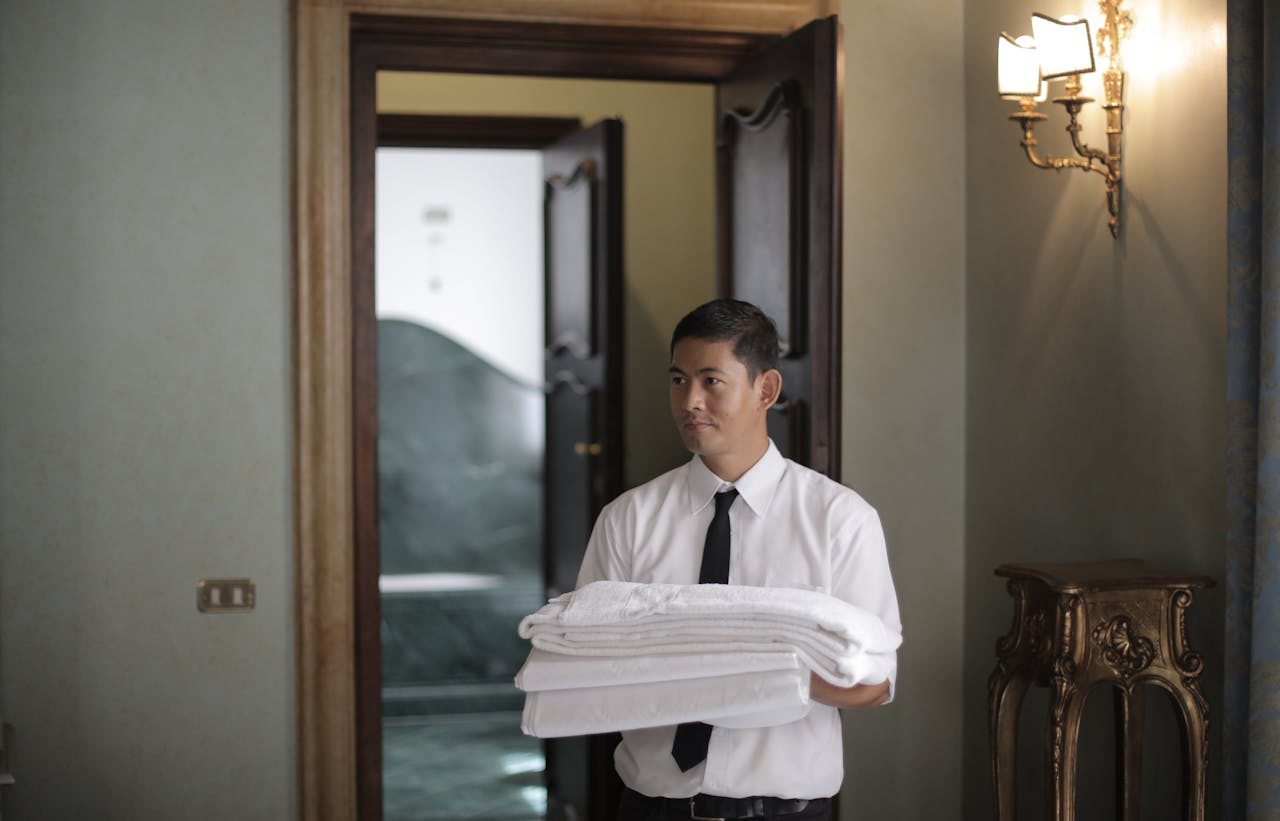Hoteliers have strongly criticised the skills pass scheme and the way applicants are examined, questioning the true purpose of the highly debated measure.
The skills pass scheme is a new set of rules designed to ensure that the workforce of Malta’s hospitality and tourism sectors have the necessary skills to provide a quality service. Last May, it came into effect for workers who are getting a work permit for the first time. From the start of 2025, those currently in Malta will need to obtain the skills pass upon renewal of their work permit.
The programme is split into two phases. The initial phase includes a mandatory online course covering English language proficiency, customer care, general hospitality practices, and knowledge of Malta’s tourist offerings. Once this is completed, applicants will need to book for an online verification interview – phase two – that is mandatory for employment in hotels, bars, restaurants, kitchens, housekeeping, and front office roles.
During an event by the Malta Hotels and Restaurants Association (MHRA) on Friday, Pierre Fenech, CEO at the Institute of Tourism Studies (ITS), the institute that is heading the skills pass scheme, noted that so far, there is a significant number of applicants who are failing the tests “because they are not up to standard.”
“If I had been running a hotel or a catering company, and these individuals came for an interview, they would not have spent two minutes in front of me. I know that the situation during the COVID-19 pandemic was desperate, but we cannot continue like that, especially if we want to push for quality tourism,” he said.

In recent years, Malta’s tourism industry has experienced substantial growth, with record tourist arrivals. On Thursday, Malta International Airport (MIA) announced that it welcomed 4.1 million passengers in the first half of 2024, its best-performing first half to date.
However, this has also led to massive personnel challenges in the hospitality industry, with hotels struggling with a shortage of local talent due to opportunities in other industries.
When the floor was opened to questions during Friday’s MHRA event, Erika Cassar, director at Hotel Juliani, expressed her frustration with the skills pass scheme. She commented that the St Julian’s hotel has staff members who cannot afford the fees needed to obtain a skills pass and thus are left with no choice but to leave the country.
“I’m trying to find ways to help them, but my hands are tied,” she said.
When taking into consideration both phases of the skills pass scheme, the programme costs non-EU nationals coming to Malta to work in the industry €475. Non-EU nationals who have lived in Malta for less than a year will need to pay €455, while those have lived for more than a year will need to pay €375.

Additionally, Ms Cassar strongly criticised the questions that applicants are being asked, stating that “they are there to make applicants fail.” She said that certain questions are more catered to individuals studying to become hotel managers than for housekeepers or waiters.
“We are in for big problems. I’m really concerned,” she commented, before pointing out a number of examples of questions that applicants were asked, one being: “What is the origin of the term hospitality?”
Responding to this, Mr Fenech said that she is quoting “some questions from a bank of 500 questions.”
He said that a system was built that incorporates artificial intelligence (AI), as there were instances where some applicants were cheating during the first phase, with senior managers answering their questions.
At that point, Ms Cassar, questioned what Government and ITS are trying to achieve through these tests, a sentiment that some hoteliers in the audience also agreed with.
Mr Fenech said that ultimately, the questions are based on material that is provided to applicants ahead of the tests, adding that they need to carefully read the coursework prior to applying for the exam.
Ms Cassar, visibly frustrated, remarked that a lack of staff could have a drastic impact on the future of Hotel Juliani, noting that while it is constantly emphasised that more locals are needed in the hospitality industry, “there aren’t any.”
“You think I would not have been glad to have employed a Maltese worker? In the past, it was lovely to employ them, but now the situation is what it is. Now there aren’t any. What are we going to do? It is isn’t a case of we want to pay less [salaries for workers], but now we have no option [but to hire foreign workers],” she pointed out.
“We have to be patient and supervise workers constantly, but it is either that or closing hip, unless the country is able to provide us with suitable staff. New Maltese hospitality workers don’t exist anymore,” she said.
In response to this, Mr Fenech said that when the skills pass scheme was first announced, there were many parents complaining on social media that after their children had finished their secondary school education, they sent 15 to 20 CVs to hotels and catering establishments.
“While there are some hotels which chose to employ these young students, there are others who tell them that they are full of foreign workers and thus cannot employ them,” he said.
Mr Fenech said that this is a shame, as there is the possibility that some of these teenagers, although not yet sure of whether they will pursue a career in tourism, could end up working in the industry.
Later in the conference, another member of the audience said that while the skills pass scheme makes sense in principle, the economy is growing and “there are no locals ready to work in any industry, not just hospitality.” He added that as a result, Malta has to “forget about locals,” and instead hotels need to have foreign workers and help them. These remarks were strongly criticised by MHRA President Tony Zahra, who said that “Malta is going up in flames” and cannot handle more tourists and hotels.
Two years since its birth, Moneybase features on Microsoft’s Customer Stories
Moneybase has now just been featured on Microsoft’s latest Customer Stories
Finance Minister confirms continuity of food and energy subsidies
Spending on food and energy subsidies as a percentage of the GDP will be at 0.7% in 2025
MHRA congratulates Glenn Micallef on EU role, highlights positive impact on Malta’s tourism and cultural sectors
The lobby group emphasised that Malta’s cultural assets and sports scene are key factors in attracting visitors and fostering economic ...






